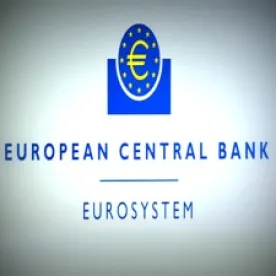Background
The Covid-19 pandemic will likely affect the business of Italian companies in the short and medium term. Accordingly, Board of Directors are currently reviewing their dividend distribution policies.
The European Central Bank (“ECB”) and the Bank of Italy (“BOI”) recommend credit institutions to refrain from making dividend distributions. Italian credit institutions are, therefore, starting to withdraw their previous dividend distribution and shares buy-backs proposals.
Credit Institutions
On 27 March 2020, the ECB published a recommendation on dividend distributions during the COVID-19 pandemic (the “ECB Recommendation”).
The ECB recommends that at least until 1 October 2020 no dividends are paid out and no irrevocable commitment to pay out dividends is undertaken by credit institutions for the financial year 2019 and 2020 and that credit institutions refrain from share buy-backs aimed at remunerating shareholders.
The ECB Recommendation is addressed to significant supervised entities and significant supervised groups as defined in points (16) and (22) of art. 2 of ECB Regulation (EU) No 468/2014.
On 27 March 2020, the BOI extended the ECB Recommendation to the less significant institutions (the “BOI Recommendation”). As clarified by the Bank of Italy, “the objective of the recommendation is to channel profits to strengthening own funds so as to place the financial system in a better position to absorb the losses that will materialize as a result of this situation and to continue to support the economy”.
The Bank of Italy recommends that, at least until 1 October 2020, all banks and banking groups under its supervision:
- Do not pay out any dividends, including the distribution of reserves, and do not take on any irrevocable commitments regarding the payment of dividends for the financial years 2019 and 2020; and
- Refrain from carrying out share buy-backs aimed at remunerating shareholders.
Following the ECB Recommendation:
-
On 27 March 2020, Intesa Sanpaolo announced that the agenda of the Board of Directors’ regular meeting, which had already been convened in the past days for 31 March 2020, will include the assessment of the ECB Communication in respect of the dividend policy in the aftermath of the COVID-19 epidemic;
-
On 29 March 2020 the Board of Directors of UniCredit held an extraordinary meeting and resolved to withdraw - without modifying the Agenda of the AGM convened on 9 April 2020 - the proposed resolutions (i) to distribute a FY19 dividend of €0.63 per share from profit reserves and (ii) to authorize a share buyback up to €467m (not exceeding 67m UniCredit shares) and (iii) to cancel the treasury shares that may be purchased under the above mentioned authorization. The Board reserves the right to convene a new Shareholders' Meeting in order to submit new resolution proposals on the three items withdrawn subject to an ECB review of its recommendation;
-
On 30 March 2020, Banca Mediolanum published a notice stating that, following the BOI Recommendation and the ECB Recommendation, Banca Mediolanum has decided to comply responsibly with the indications of the supervisory authorities by postponing the distribution of FY19 dividends until at least 1 October 2020;
-
On 30 March 2020, Banca Generali published a notice stating that, following the BOI Recommendation and the ECB Recommendation, Banca Generali has decided to responsibly comply with the supervisory bodies’ indications and thus postpone, for the time being, the FY19 dividend distribution;
-
On 31 March 2020, the Board of Directors of Intesa Sanpaolo decided to suspend the proposal regarding the cash distribution to shareholders of around 3.4 billion euro, equal to 19.2 euro cents per share, on the agenda of the AGM convened for 27 April 2020, and passed a resolution to propose the allocation to reserves of net FY19 income at the upcoming AGM. This is in compliance with the ECB Recommendation on dividend policy in the aftermath of the COVID-19 epidemic.
-
On 1 April 2020, the Board of Directors of Banca IFIS decided to comply with the BOI Recommendation, postponing the FY19 dividend distribution until at least 1 October 2020.
Other credit institutions will likely follow in the next future.
Companies Other than Credit Institutions
Other companies have started to review their dividend policy, either withdrawing their dividend distribution proposals or postponing the decision. By way of example:
-
On 19 March 2020, the Board of Directors of Cattolica Assicurazioni S.p.A. approved the FY19 results and resolved, taking advantage of art. 106 of the “Cura Italia” Decree, which extends the term for holding AGMs (see Sec. IV), to postpone the decision on the distribution of FY19 dividends;
-
On 20 March 2020, the Board of Directors of Brembo S.p.A. resolved on the modification of the proposed FY19 dividend distribution. Taking a prudent approach, in order to support the Group’s financial solidity and contain future impacts on its economic and financial performance, the Board decided to suspend the resolution authorizing the distribution of the FY19 dividend previously approved on 9 March. A FY19 dividend distribution may be proposed when the current situation relating to COVID-19 has been resolved. Accordingly, at the next AGM called for 23 April 2020, the Board will propose to carry forward the FY19 profit (net of the portion allocated to reserves);
-
On 20 March 2020, the Board of Directors of Amplifon S.p.A. resolved on the modification of the proposed FY19 dividend distribution, previously adopted on 4 March 2020. The Board, following a prudent approach in order to further strengthen the company’s financial structure limiting cash-outs, will propose to the AGM convened on 24 April 2020 to allocate all FY19 profits to retained earnings.
Italian Corporate Law Issues - Shareholder Meetings and Payment of Dividends in Italian Companies
As a result of the state of national emergency prompted by the COVID-19 crisis, urgent legislation has imposed a number of limitations on local residents, including a general prohibition on moving within the Italian territory unless for “proven working reasons, state of need, or health reasons”.
These fairly drastic measures affect shareholder meetings of public and private companies, still which physical attendance is still generally required and alternative “virtual” means of congregation, or of formation of consensus, are the exception.
The issue is extremely important as a large number of Italian companies (ordinarily, all those with financial year ending on 31 December) are required to approve their financial statements during the month of April. Indeed, Articles 2364, para. 2, and 2478-bis of the Italian Civil Code provide that joint stock companies and limited liability companies generally need to hold their annual general meetings for the approval of annual balance sheets within 120 days, or, when the by-laws so permit, 180 days after the end of the financial year.
Law Decree no. 18 of 17 March 2020 (the “Decree”), enacting measures to support families, workers and businesses, in the wake of the COVID-19 emergency, also addresses the issues at hand.
Art. 106, paragraph 1, of the Decree, provides a new general exception to the ordinary 120-day requirement under Arts. 2364, para. 2, and 2478-bis of the Italian Civil Code, and to any similar restrictions set forth in a company’s by-laws, allowing all AGMs to be held within 180 days after the end of the company’s financial year.
Recourse to this exceptional extension will be discretionary, and will not require a showing of the “particular needs” referred to under Art. 2364, or any other justification.
The Decree also contains (Art. 106, paras. 2 to 4) provisions that permit remote gathering and decision-making techniques, namely through the holding of shareholders meetings by way of teleconference, the use of written resolutions and the extended resort (for public companies) to designate proxies for shareholders.
The exception to the ordinary 120-day deadline for the holding of AGMs is also meant to grant additional time to directors and auditors to evaluate the impact of lockdown on the company’s financial prospects and cash flow and to decide whether to declare dividends or distribute profits accrued in the previous financial year. Indeed, as outlined above, some Italian companies are actually reconsidering their plans (even when already announced by their Boards) to declare dividends in view of the changed circumstances.
However, once a dividend has been declared (by way of an ad hoc resolution of the AGM), the dividend becomes an individual right of the recipient shareholder, who will therefore acquire a monetary claim against the company. To the extent the company is unable to pay on the due date, the creditor (shareholder) will be entitled to enforce ordinary legal remedies for collection of its debt.
It may be worth noting that Art. 91 of the Decree has introduced a “quasi-moratorium” for all debts, the payment of which is prevented or hindered as a consequence of the containment measures enacted in the wake of the COVID-19 crisis. Namely, Art. 91 of the Decree provides that “compliance with the containment measures ... is always considered for purposes of excluding ... the debtor’s liability, also in connection with the application of any forfeitures or liquidated damages stemming from late or omitted performance”.
Due to the novelty of this provision, it is not possible to assess its applicability to particular circumstances, or if the interpretation and construction of the expression “compliance with containment measures” will also extend to financial difficulties indirectly occasioned by the lockdown.
As of 1 April 2020, various publicly listed companies have adjusted their dividend policies, either in response to requests by regulatory authorities (i.e., credit institutions) or spontaneously adopting a prudent approach. Depending on how the COVID-19 outbreak develops, there may be a need for other companies to follow the same path.




 />i
/>i
